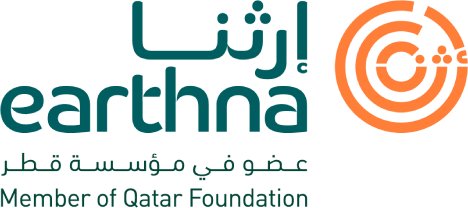
Traditional knowledge can be defined as the skills, practices and experiences passed down through generations. It encompasses cultural heritage, adaptation, inclusivity, community support and an interconnection between nature and the environment.
While climate change is not a new concept, our ancestors have historically adapted alongside environmental shifts. However, our fast-paced lives have greatly affected the increase in, and unpredictable nature of modern climate change. Unsustainable technology uses, aiming solely at efficiency without considering environmental impacts, exacerbate this change, leading to imbalances in the environment and unpredictable climate phenomena.
According to the Food and Agricultural Organization, nearly 1.8 billion people will face “absolute water scarcity” by 2025 [1]. Water scarcity leads to food scarcity which is closely linked to land use as over 70% of the Earth’s freshwater goes to the agriculture sector for food production. Historically, farmers used to predict rainfall and rely on it as a source of water for crop irrigation; however, climate change has complicated rainfall prediction. A secondary irrigation resource commonly used amongst farmers is groundwater. In the past, farmers employed sustainable gravity-driven methods to extract groundwater through underground channels from aquifers. But now, once sustainably tapped groundwater faces depletion due to excessive pumping, worsened by unrestricted use and energy subsidies, particularly in the MENA region.[2]
What can we do to mitigate the climate crisis and its impact on water resources?
Reflecting on traditional knowledge and some of its sustainability aspects is crucial for developing approaches to modern water management techniques, specifically in arid and semi-arid regions. Analyzing case studies that still employ and secure traditional knowledge sheds light on the factors contributing to their success or struggles and provides valuable lessons for sustainable development.
The Great Green Wall Initiative is one example. Adopted by the African Union in 2007, the initiative reveals the effectiveness of blending modern methods with traditional practices. Spanning 11 African countries, it is an attempt to combat desertification by promoting local practices like "zai-pits", or crescent-shaped ditches, for rainwater capture.[3] This work is complemented and informed by satellite imagery and remote sensing technology – modern techniques being used to measure desertification, direct action, and monitor restoration. The Great Green Wall Initiative uses an approach that encourages each country to tackle land degradation, water scarcity, climate change adaptation and mitigation, forestry and biodiversity within a local context, which often means using traditional methods alongside innovative technology.[4] Supported by international organizations like The World Bank, UNCCD, and FAO, these initiatives offer lessons for global challenges, particularly when it comes to blending traditional knowledge with contemporary solutions.
It is important to recognize initiatives aimed at preserving traditional knowledge, as they offer valuable insights into the potential policies and support mechanisms that can be developed to ensure the success and sustainability of modern practices. By understanding what drives and sustains these initiatives, we can enhance future practices and policies supporting sustainability.
By Dr Deema AlMasry
Senior Policy Associate
[1] https://www.unep.org/news-and-stories/story/global-water-shortages-are-looming-here-what-can-be-done-about-them#:~:text=At%20least%2050%20per%20cent,calls%20“absolute%20water%20scarcity.”
[2] Al-Saidi, M. (2024). Yemen’s Water Woes: Why Climate Change Is a Drop in the Bucket. MALCOLM H. KERR CARNEGIE MIDDLE EAST CENTER.
[3] https://education.nationalgeographic.org/resource/great-green-wall/
[4] Goffner, D., Sinare, H. & Gordon, L.J. The Great Green Wall for the Sahara and the Sahel Initiative as an opportunity to enhance resilience in Sahelian landscapes and livelihoods. Reg Environ Change 19, 1417–1428 (2019). https://doi.org/10.1007/s10113-019-01481-z
